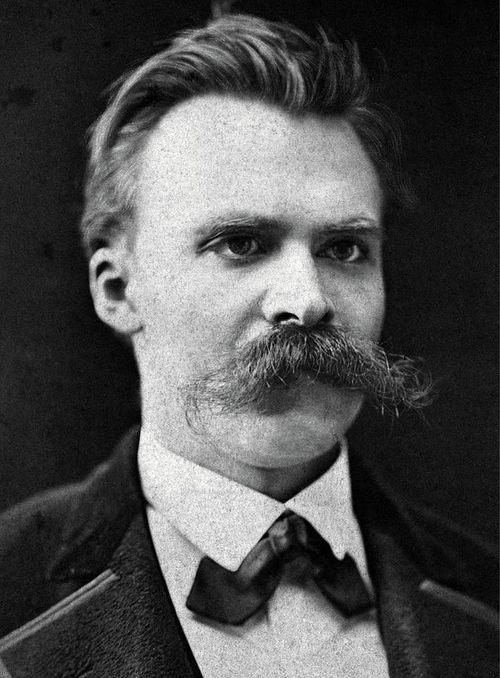
On Friedrich Wilhelm Nietzsche’s Ecce Homo
1.
A few years ago, I was riding my bike and thinking about the declaration “I am not a man. I am dynamite,” when I hit a pothole and flipped over my handlebars, giving a new meaning to having one’s view of the world turned over by Nietzsche. The self-anointed Antichrist never wanted to be made a holy man (sooner even a buffoon, he said) and I won’t conscript him here except as, of all things, a contemporary memoirist. Ecce Homo,the mostly forgotten autobiography in which the dynamite explodes, is a downright archetypal if extremely odd memoir. The book’s subtitle, How One Becomes What One Is, nearly saysit all: this is a story not of a life but of a self in time—how the I of the
story became the I who tells the story—and like so much of Nietzsche’s writing,
Ecce Homo was, as he said, a hundred
years ahead of its time.
Nietzsche had no way of knowing, when
he wrote the text in three weeks in
the fall of 1888, that he was about to take ill or that Ecce Homo would be his final work. At the time he was mostly
ignored, and had been best known as a former philological wunderkind. His
status grew under his sister’s careful management during the insanity of his
final decade when he was unable to appreciate it, but she withheld publication
of his own self-reflections until 1908, eight years after his death.
Ecce
Homo remains a kind of lost book from a found author; in the century since
its publication, while Nietzsche has risen in prominence and fluctuated in notoriety,
Ecce Homo has remained relatively
obscure. While books like The Birth of
Tragedy and Thus Spoke Zarathustra
are frequently referred to (if less frequently read), Ecce Homo most likely sits on your shelf only as the unfamiliar
text included in the volume of The
Genealogy of Morals you were assigned in college.
If you go to your bookshelf now and
crack that 1989 Vintage edition to page 202 you will encounter Walter Kaufmann
of 1966 making the case for Ecce Homo by
comparing Nietzsche’s—can I say swagger—to
that of his contemporary Van Gogh (“the lack of naturalism is not proof of
insanity but a triumph of style”). We have Kaufmann largely to thank for the
redemption of Nietzsche’s name after the Nazis’ attempted appropriation. But I
don’t think it’s enough to read him only as a thinker but also as, perhaps, a
liver. Because life for Nietzsche was both...
You have reached your article limit
Sign up for a digital subscription and continue reading all new issues, plus our entire archives, for just $1.50/month.
Already a subscriber? Sign in




